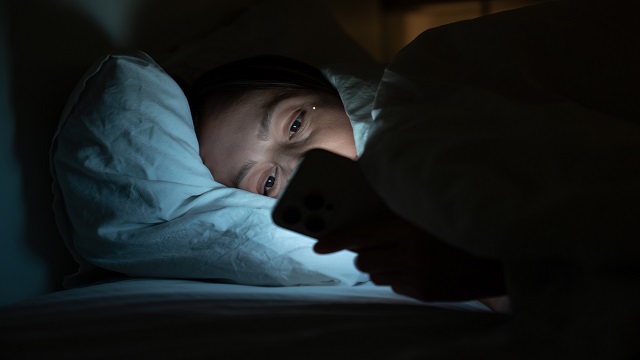Using Screens Before Bed May Boost Insomnia Risk by 59%
A recent study has shown that using screens before bedtime can raise your chances of developing insomnia by 59%. The study highlights the impact of screen time on your sleep quality and how it can disrupt your ability to fall asleep.
Experts explain that screens from devices like phones, tablets, and computers emit blue light, which interferes with your natural sleep cycle. When you look at a screen late at night, the blue light suppresses the production of melatonin, a hormone that helps you fall asleep. As a result, you may find it harder to relax and drift off to sleep, leading to insomnia.
The research involved tracking the sleep habits of people who used their phones or other devices late at night compared to those who didn’t. The findings showed a significant difference in sleep quality. People who used screens for more than an hour before bed experienced difficulty falling asleep and staying asleep throughout the night. These individuals were 59% more likely to develop insomnia over time than those who avoided screen use before bedtime.
Health experts warn that poor sleep can have serious consequences on overall health. Insomnia can lead to a weakened immune system, lower energy levels, and difficulty concentrating during the day. It can also increase the risk of mental health issues like anxiety and depression. Therefore, reducing screen time before bed is a simple yet effective way to improve your sleep quality and overall health.
To improve your sleep, experts recommend creating a bedtime routine that avoids screens at least 30 minutes before you sleep. Instead, try reading a book, listening to relaxing music, or practicing deep breathing exercises. By making these small changes, you can reduce your risk of insomnia and enjoy a better night’s sleep.
In conclusion, the study reveals that using screens before bed can significantly affect your sleep patterns and increase the risk of insomnia. Reducing screen time before bedtime is an easy step that can help improve your sleep and overall well-being.

